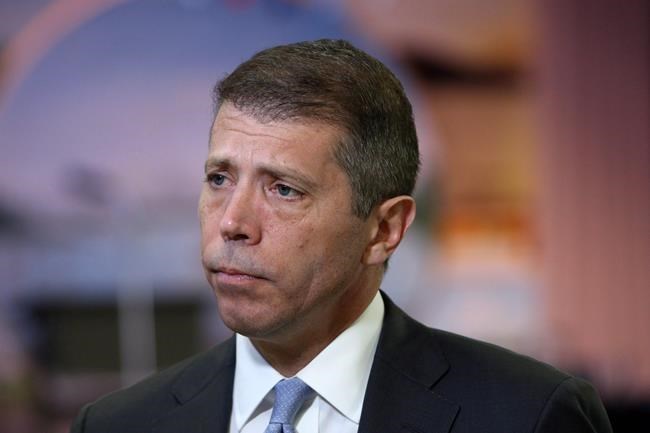TORONTO — Canadian securities regulators say they will publish specific recommendations this summer after gathering feedback about whether the regulatory bodies for investment dealers and mutual fund dealers should be restructured or merged.
On Monday, Canadian Securities Administrators announced it will soon release a paper outlining its position on the future of the Investment Industry Regulatory Organization of Canada and Mutual Fund Dealers Association of Canada.
The CSA's decision on the future of the two bodies will have a significant and long-lasting impact on investors and Canadian capital markets, Louis Morisset, CSA Chair and chief executive of the Autorité des marchés financiers, said in the statement on Monday.
IIROC chief executive Andrew Kriegler said that the organization is looking forward to the specific recommendations promised by the CSA.
"This work is important to Canadians and their financial futures,” said Kriegler in a statement on Monday.
The CSA, which harmonizes regulation for capital markets across the provinces and territories, released a consultation paper last year on the topic.
In the consultation paper, the CSA noted that the current self-regulating structure for investment and mutual fund dealers has been in place for almost 20 years, but that a review had been considered and suggested many times over the years.
The paper noted that IIROC and MFDA provide a national scope while each making rules in their own areas of expertise.
But the CSA's consultation paper also said that stakeholders were concerned that the current system created duplicative costs, and that the multiple layers of regulation left investors confused as to where to turn when issues arise.
The CSA compared IIROC and MFDA to the U.S. Financial Industry Regulatory Authority and the U.K. Financial Conduct Authority and Prudential Regulation Authority.
The U.S. Securities and Exchange Commission has opted for a single self-regulating organization, the CSA paper said, since multiple bodies could fragment the market and lead to a regulator that "struggles to act in the public interest or effectively enforce their rules due to funding concerns or other influence from their members."
The U.K. moved away from self-regulating organizations toward two statutory regulators, the CSA paper said, after a system of multiple self-regulating bodies was considered too burdensome, while a single statutory authority was abolished after failures identified in the 2008 and 2009 recession.
In Canada, the CSA's paper said, investment dealers are required to be members of IIROC and mutual fund dealers are required to be members of the MFDA — except in Quebec, where mutual fund dealers are directly regulated by the Autorité des marchés financiers
In a written submission to the CSA on the topic in October, the Investor Protection Clinic at the University of Toronto Faculty of Law said the existing structure of the CSA, IIROC and MFDA can be so confusing it leads to investor fatigue, "resulting in investors giving up on finding the right investment for them."
"The more rural an area, the less diversity there is in dealer membership. If a client of a MFDA dealer wants to diversify or expand their investment portfolio, they must open a new account with a new investment firm," wrote Ivy Lam, director of the clinic.
"As a result, investors sticking with one advisor are limited in their access to advice, knowledge, and investments. In addition, dealers whose clients wish to invest in products not offered by them may be incentivized to dissuade them ... This is a potential conflict of interest which potentially limits and harms investor choice."
The clinic also noted that if investment firms don't have to pay two sets of fees for dealer membership to IIROC or MFDA, that could lower costs for investors.
"A consolidated (self-regulatory organization) platform, whether achieved through merger or the formation of a new (self-regulatory organization), would benefit investors by having the potential to reduce investor confusion and fatigue," wrote Lam.
"We believe that a consolidated (self-regulatory organization) would also serve to reduce barriers to investment advice, products and services that investors currently face, as well as promote more equitable access to investing."
Both IIROC and MFDA have released their own suggestions on reforming the regulatory framework. In a paper last year, IIROC suggested that it could combine with the MFDA within three months, but said changes to the regulatory framework should not "limit the practical ability of advisors to deliver financial advice and financial services to Canadians, especially those in under-served communities."
MFDA has suggested that rather than "patching together existing structures," a new organization could be built from the ground up to offer similar protections to all investors, "regardless of their dealer’s registration category."
This report by The Canadian Press was first published Feb. 22, 2021.
Anita Balakrishnan, The Canadian Press



